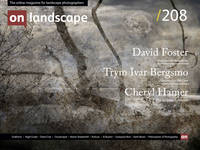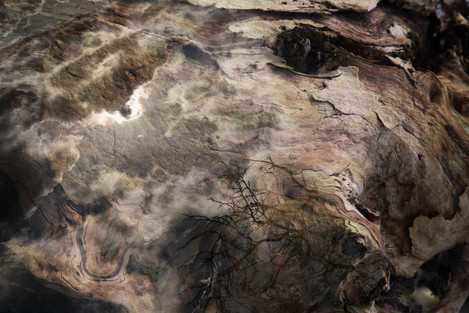Featured Photographer

David Foster
David Foster is a professional artist working with photography (often double-exposure photography), video, film, sound, and found objects. His third solo exhibition is due to open in Oxford in Autumn 2020. Born in Hampshire in November 1979, he grew up in Northumberland and studied at the Universities of Plymouth, Newcastle, and Reading, completing a PhD at the latter in 2011, in the Department of Film, Theatre and Television, where he currently teaches. His writing on film, photography, art, literature, theatre and music, has appeared in various books and academic journals.

Michéla Griffith
In 2012 I paused by my local river and everything changed. I’ve moved away from what many expect photographs to be: my images deconstruct the literal and reimagine the subjective, reflecting the curiosity that water has inspired in my practice. Water has been my conduit: it has sharpened my vision, given me permission to experiment and continues to introduce me to new ways of seeing.
I came across David Foster on Twitter, where he was sharing beguiling photographs from his project 'everything seemed to be listening'. David has previously been drawn to edgelands, wastelands, and borderlands, and to ruined, derelict and abandoned places (which you can see at davidfoster.photography) but for the last three years he has been creating images and videos in response to the places in which the artist Paul Nash lived and worked. For the still images, David has chosen to work with double exposure photographs, made in camera, seeking a dialogue with what Nash referred to as ‘the life of the inanimate object’. David’s images and videos are titled with a grid reference giving the location where the work was made, but he talks about the way in which he reaches these places as being equally important.
Would you like to start by telling readers a little about yourself – where you grew up and what your early interests were?
I was born in Aldershot in Hampshire but spent my childhood from the age of four in Northumberland, first in a house on the edge of the old coal-mining village of Acomb, then in my teenage years in a house in the centre of the nearby market town of Hexham. The main interest that I had as a child which has extended into adulthood was that of music, which I loved making and listening to from a very early age - something that is still very much the case today. As a young boy, I think I did a fair amount of solitary wandering of the woods and fields just outside Acomb. I also used to regularly walk the two miles to school in Hexham, in order to avoid the bullies that tyrannised the school bus. Those early experiences of solitary walking – and indeed of the alienation and search for solace that so often prompts and fuels that kind of activity – perhaps shaped to a considerable degree some salient aspects of the outlook and sensibility that I have today.


